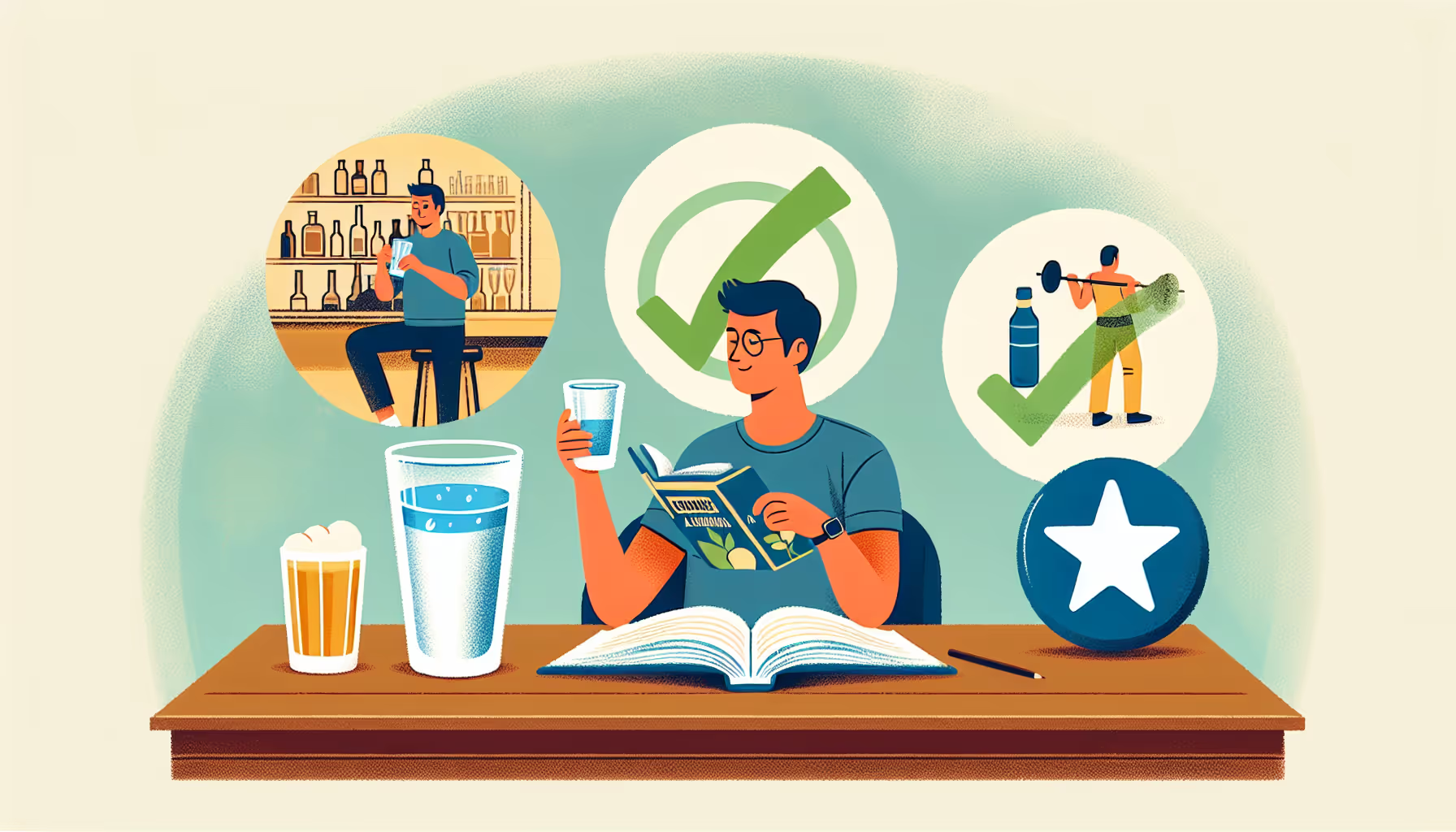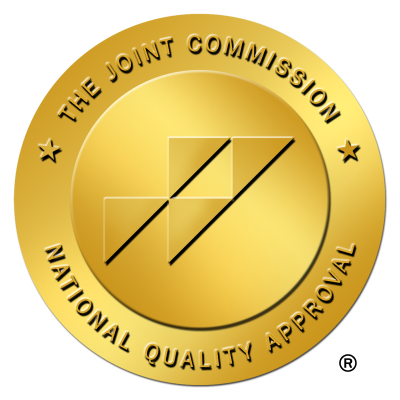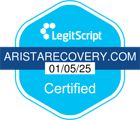How To Start Drinking Less

Understanding Alcohol Use
To start drinking less, one must first understand the nature of alcohol use and the factors contributing to excessive drinking. This understanding paves the way for informed decisions about alcohol consumption and the strategies needed to reduce it.
Defining Alcohol Use Disorder
Alcohol Use Disorder (AUD) is a chronic relapsing brain disease characterized by an impaired ability to stop or control alcohol use despite adverse social, occupational, or health consequences. More than 14 million adults ages 18 and older have AUD, and 1 in 10 children live in a home with a parent who has a drinking problem.
AUD can be mild, moderate, or severe, with each category having various symptoms that affect the individual's life quality. Lasting changes in the brain caused by alcohol misuse perpetuate AUD and make individuals vulnerable to relapse. Despite this, evidence-based treatments, including behavioral therapies and medications, can help people with AUD achieve and maintain recovery [2].
Risk Factors for Alcoholism
Several common risk factors can influence the development of alcoholism. These include:
- Biological factors: Genetics and physiology can predispose an individual to alcoholism.
- Environmental factors: Living close to alcohol establishments, exposure to alcohol advertising, and family influence can contribute to excessive alcohol use.
- Social factors: Peer pressure and societal norms can encourage drinking.
- Psychological factors: High stress, anxiety, depression, and other mental health conditions can drive people to alcohol as a coping mechanism.
Early drinking, growing up in a family with alcohol addiction, high levels of stress, peer pressure, and frequent alcohol consumption over a long period are also key risk factors for developing alcoholism [3].
Understanding these risk factors is crucial for recognizing potential triggers and implementing strategies on how to start drinking less. Recognizing and addressing these factors can help individuals make significant strides toward reducing their alcohol consumption and improving their overall health.
The Health Impact of Alcohol Use
Excessive alcohol consumption can have a significant impact on an individual's physical and mental health. Understanding these effects is an important first step in the journey of learning how to start drinking less.
Physical Effects of Alcohol
Long-term and heavy use of alcohol can lead to numerous physical health problems. One of the most significant effects alcohol has on the body is on the brain. Alcohol can inflict lasting harm on the brain, causing shrinkage of the hippocampus, a region crucial for memory and learning. A study conducted by the University of Oxford found that participants who consumed four or more drinks a day had almost six times the risk of hippocampus shrinkage compared to non-drinkers. The amount of brain shrinkage was proportional to the amount of alcohol consumed, with even mild and moderate drinkers showing more shrinkage than those who abstained from alcohol entirely.
Further, excessive and long-term alcohol use can result in thiamine deficiency, leading to the development of Wernicke-Korsakoff Syndrome (WKS) or "wet brain." This condition can cause persistent mental confusion, eye movement disturbances, coordination difficulties, and long-lasting learning and memory problems.
Alcohol and Mental Health
Alcohol use can also have detrimental effects on mental health. It can exacerbate pre-existing psychiatric disorders such as depression and anxiety, or may even induce these conditions in some individuals. The cognitive effects of alcohol use can include memory loss, learning difficulties, dementia, and severely hindered mental functioning in severe cases [4].
There is also a significant link between alcohol use and mental health problems. People who drink alcohol are more likely to develop mental health problems, and individuals with severe mental illness are more likely to have alcohol problems. This relationship may be due to 'self-medication,' where individuals drink to cope with difficult feelings or symptoms related to mental health issues.
Reducing alcohol consumption can help to alleviate these physical and mental health effects. This can be achieved through personal strategies, professional help, and public health interventions, all of which will be explored in later sections.
Strategies for Reducing Alcohol Consumption
If one is looking for ways on how to start drinking less, there are several strategies that can be employed. These strategies involve setting personal goals, practicing protective behavioral strategies, and leveraging the support of friends, family, and professional resources.
Setting Personal Goals
The first step towards reducing alcohol consumption involves setting clear and achievable personal goals. According to NCBI, setting an abstinence goal in the morning was found to be most successful in limiting alcohol consumption for the remainder of the day. However, it's worth noting that participants who set abstinence goals more often also drank more per drinking occasion.
Writing down reasons for wanting to cut back on alcohol consumption can increase the likelihood of success. It's advised to have specific long-term goals such as lowering blood pressure or losing weight, along with setting short-term goals like having "no-drink" days [6].
Rewarding oneself upon achieving these goals can serve as positive reinforcement. Rewards can range from indulging in activities like watching a movie, purchasing new items, to simply having personal downtime.
Protective Behavioral Strategies
Practicing protective behavioral strategies can also be highly beneficial in reducing alcohol consumption. This includes eating a substantial meal before drinking and snacking throughout the night.
Another suggested strategy is maintaining a limit of 1 drink per hour, as the body can only metabolize about one standard drink per hour.
Drinking water before, during, and after consuming alcohol can help with hydration and overall well-being. Additionally, sticking to standard drink sizes can help count drinks accurately, pace oneself effectively, and prevent alcohol poisoning.
The Role of Support Systems
Changing habits to cut back on drinking may require adjustments in social circles or lifestyle. Getting support from friends and family, seeking help from a counselor, and considering available treatment options based on the individual's condition are essential components of a plan to reduce alcohol use [6].
In addition, anticipating slip-ups and reflecting on the triggers that caused them can be beneficial to avoid similar situations in the future. This awareness can play a significant role in improving strategies to successfully reduce alcohol consumption.
In conclusion, reducing alcohol consumption requires a comprehensive approach that includes setting personal goals, practicing protective behavioral strategies, and leveraging the support of friends, family, and professional resources. Remember, every individual's journey is unique, and what works best for one person may not work for another. Therefore, it's important to explore different strategies, be patient with oneself, and seek professional help when needed.
Professional Help for Alcohol Reduction
For those who are seeking ways on how to start drinking less, professional help can be an invaluable resource. This assistance can come in various forms, including behavioral treatments, medications, and mutual-support groups. Each of these strategies can contribute to a successful journey towards reduced alcohol consumption and healthier living.
Behavioral Treatments for Alcohol Use
Behavioral treatments aim to change drinking behavior through counseling. They are conducted by health professionals and have been shown to be beneficial in supporting individuals in their journey to reduce alcohol use.
Different types of behavioral treatments for alcohol use disorder (AUD) include alcohol counseling, talk therapy, and interventions provided by licensed therapists. These treatments often involve brief interventions, reinforcement approaches, motivation-building treatments, coping skills education, and mindfulness-based therapies [2].
One of the main goals of these treatments is to help individuals develop skills to avoid and overcome triggers that might lead to drinking, such as stress. Regular checkups with a treatment provider are highly beneficial in this process.
Medications for Alcohol Reduction
In addition to behavioral treatments, certain medications can also aid individuals looking to stop or reduce their drinking and prevent relapse. Currently, three medications are approved in the United States for this purpose [1].
These medications can be prescribed by a primary care physician or other health professional and may be used alone or in combination with counseling. They can also deter drinking during times when individuals may be at greater risk of relapse, such as during periods of heightened stress or personal loss.
Mutual-Support Groups
Mutual-support groups can offer peer support for individuals looking to stop or reduce drinking. These groups provide meetings at low or no cost, at convenient times and locations, and can also be found online [2].
Combined with medications and behavioral treatment, mutual-support groups can provide an added layer of support. They offer a platform for sharing experiences, challenges, and successes, allowing individuals to learn from each other and draw strength from shared experiences.
Professional help for alcohol reduction is a crucial component in the journey towards healthier alcohol consumption habits. It's important to remember that each individual's journey is unique, and what works for one person may not work for another. Therefore, it's important to explore different options and find the combination of strategies that works best for you.
The Role of Public Health Strategies
Public health strategies can play a significant role in helping individuals understand how to start drinking less. These strategies can include initiatives like regulating alcohol pricing and consumption, managing alcohol outlet density, and enforcing the legal drinking age.
Alcohol Pricing and Consumption
One approach to reducing alcohol consumption is through adjusting the cost of alcoholic beverages. According to the CDC, increasing the price of alcohol by 10% is expected to reduce overall alcohol consumption by an average of about 7% across beverage types. The more the price of alcohol is increased, the more potentially excessive alcohol use and related harms can be reduced.
Regulating Alcohol Outlet Density
Regulating the number and concentration of alcohol retailers in an area, referred to as 'alcohol outlet density', can also help reduce excessive alcohol use and related harms. City, county, or state governments have the capacity to control the number of places that sell alcohol through licensing or zoning processes. This can limit the availability of alcohol and subsequently reduce excessive alcohol use [8].
Enhanced Enforcement of Legal Drinking Age
Another public health strategy is the enforcement of the minimum legal drinking age. In the United States, the legal drinking age is 21. Enhanced enforcement of this law can reduce sales to minors in retail settings, helping to reduce youth access to alcohol.
Furthermore, laws that hold alcohol retail establishments accountable for injuries or harms caused by illegal sales or service to intoxicated or underage customers can help reduce harms from excessive alcohol use, including deaths from motor vehicle crashes. Additionally, limiting the days or hours that alcohol can legally be sold or served may help reduce excessive alcohol consumption.
Public health strategies thus play a critical role in creating an environment that supports healthier drinking habits. By regulating the pricing, availability, and access to alcohol, these strategies aim to reduce excessive consumption and the associated health risks.
References
[2]: https://www.niaaa.nih.gov/publications/brochures-and-fact-sheets/understanding-alcohol-use-disorder
[3]: https://www.alcoholrehabguide.org/alcohol/causes/
[4]: https://americanaddictioncenters.org/alcohol/risks-effects-dangers/mental
[5]: https://www.mentalhealth.org.uk/explore-mental-health/a-z-topics/alcohol-and-mental-health
[6]: https://myhealth.alberta.ca/Health/pages/conditions.aspx?hwid=zx3994
[7]: https://wellbeing.uni.edu/student-wellness/alcohol-other-drugs/education/protective-behavioral-strategies


